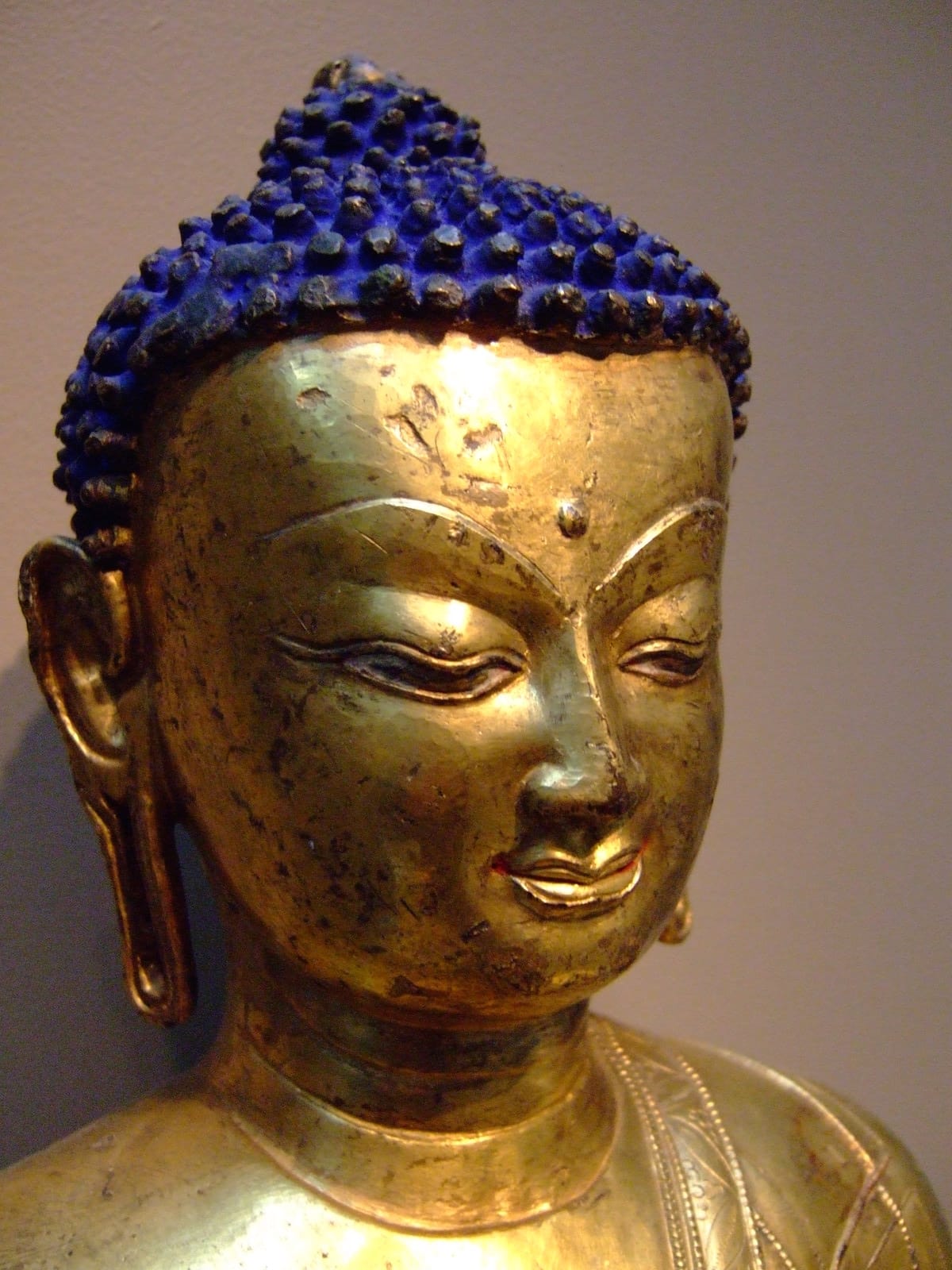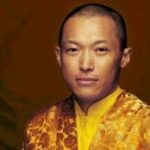[smr-disclaimer]
Transforming society, says Sakyong Mipham, begins with the simple act of contemplating our basic goodness and reflecting on how we really feel about ourselves.
My father, Chögyam Trungpa Rinpoche, was one of the last great Buddhist teachers to be trained fully in Tibet while it was still a spiritual kingdom. When he had to escape, leading three hundred people through the Himalayas in 1959, there was a point when he asked himself, “What am I going to do now?” He was holder of a vital spiritual legacy, but at the same time he had experienced incredible savagery—in a sense, the worst of humanity. At that moment, he decided he still believed in the inherent goodness of humanity.
For the rest of his life, until he died in 1987, he taught about basic goodness. Because of his bravery and determination, many people have learned about meditation and Buddhism. When my father first came to the West almost fifty years ago, meditation was still very much a New Age phenomenon, and many people were skeptical about it. No one understood that practical people like Tibetans, whose environment is such a challenge to survival, would hardly have kept meditating if it hadn’t worked.
However, now that science is validating the benefits of meditation, we have entered an age when the teachings of science and spirituality are intersecting. Because of that, humanity has a rare opportunity. At only a few other moments in history—the time of the Buddha, the age of Socrates—has the moment been so ripe for us to reflect on our future.
It is hard to ignore the distrust and aggression of the world we are living in. What are we going to do about it?
A critical element in pondering such a question is to look deeply at human nature—not in the context of a particular religion or science, but in terms of how we feel about ourselves. This may be our most important global issue. I have contemplated the question of human nature to see if I really believe in the basic goodness my father taught.
This basic goodness is not merely a sense of good versus bad— that’s why it is called basic. The Tibetan term, dömi-ne sangpo, means “primordially pure, full, or complete.” On a relative level, we experience this as a sense of worthiness.
When we get up in the morning, do we feel worthy? When I am teaching in the West, people talk about self-loathing and self-aggression. Where is that coming from, this sense of unworthiness? Some philosophers long ago—or perhaps it was our church, school, or parents—said life is brutish and cruel. Others have said we are inherently selfish or bad. These thoughts dominate how we regard ourselves. It’s hard to step out of this mindset when our culture reinforces those influences. However, we can use our awareness to evolve. We can start by asking simply: How do I feel? Is it possible that humanity is good? Can we create a society that is decent?
A moment of self-reflection has a dynamic and powerful influence on our day, one with social implications. Self-reflection is how we can transform society. Transforming society happens one person at a time, by our willingness to be kind to ourselves, and our willingness to be kind to one another.
We are living in a culture where the words kindness and love seem futile. At this point it feels like aggression and greed are taking over, but recent events have awakened us to all kinds of realities, offering us an opportunity to ask: What kind of world are we creating? How are we regarding ourselves, and how are we regarding others? Are we worthy?
The moment we ask these questions is a very important moment. It validates our own existence, but not necessarily in a self-centered or egotistical way. We feel more embodied, ready to engage. Feeling worthy allows us to be more magnanimous, and then feelings of kindness, love, and generosity come more easily.
We have inherited quite a bit of wisdom, which is essential for how we are going to move forward. Throughout history, the great civilizations have been characterized by an inherent confidence: they feel good about themselves. In Tibet, we call this energy lungta, “windhorse.” It’s a sense of wanting to engage in life. It is equated with the sun rising, a sense of energy. We can all cultivate such confidence by learning to feel our goodness and reflecting on the worthiness of humanity. It is not that we have to be perfect. A society that honors a deep feeling of worthiness can accommodate mistakes, for love and kindness naturally extend from such awareness. A society that honors a deep feeling of mistrust suppresses love and kindness, buying into anxiety and fear. Then, as the mistrust grows, animosity arises.
To self-reflect, to feel worthy, to connect with human goodness— these are brave things to do. Perhaps we can’t do it. A lot of us are fearful because we are not sure what is going to happen. So we’d rather just hunker down and ignore the mood of global despair. But there’s really no neutral stage. If we’re not engaging in progress or positivity, we’re participating in the negativity. As human beings, we have the power to shift our destiny. However, in a culture that encourages us either to be working, or recovering from work through shopping and entertainment, it is hard to make time for self-reflection. In that case, we are suffocating our possibilities. As we can see in the life of my father, even one brave and determined person can have a very big impact.
Are we going to be brave? What must we do now? First, we need to make time for self-reflection, and cultivate the habit. Otherwise it’s hard to contextualize who we are. Then, we have to shift our value system, creating a climate where kindness is as valid as ambition. The root of the word kind is “kin”—family. When we are kind, we are looking at each other as brothers and sisters. Is that how we regard each other now?
When social interaction is rooted in the awareness of human worthiness and its expression, kindness, the networks we weave make a strong and resilient fabric. That is how we create an environment that expresses lightness and humor, with an appreciation of life and the goodness of who we are. These are the building blocks of an enlightened society. It is not a utopia, but a place where we celebrate humanity, which makes life worth living. It affects education, ecology, the arts, and politics. That’s the spirit my father brought out of Tibet.
We bring such a society into being by strengthening our conviction in humanity’s goodness. We do this by taking a few moments and feeling what’s beneath all our daily concerns. This trains us to become familiar with the simplicity of now, the only place and time that we can touch this deep inner reality, which brings a feeling of worthiness. Even though we may not trust it or believe it, just allowing for that possibility has an impact on what we say and do. In that moment, we are determining the outcome of the universe.

